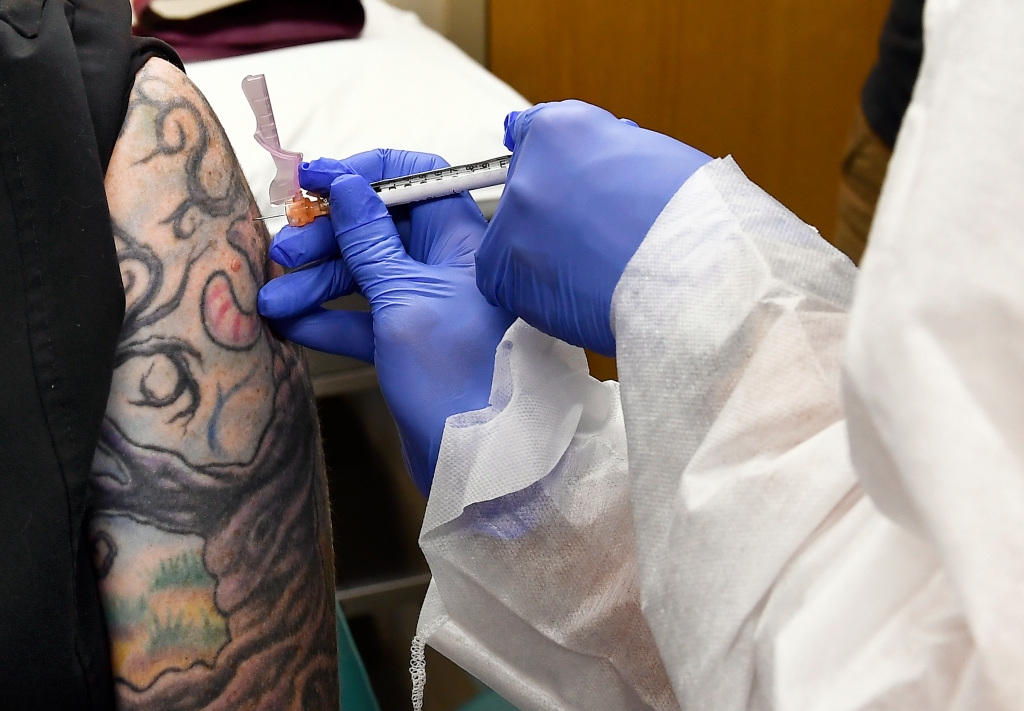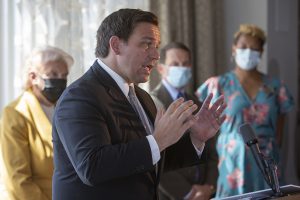California will conduct its own independent review of potential COVID-19 vaccines, signaling its distrust of the Trump administration’s accelerated “Operation Warp Speed” initiative.
To vet a vaccine before distribution to state residents, California Health and Human Services Secretary Dr. Mark Ghaly said Friday that the state will assemble a “review board” of leading scientists at academic institutions to assess the safety and effectiveness of any vaccine candidate.
“We think it is an appropriate approach to take, especially because things are moving so quickly,” Ghaly said. “We want to make sure – despite the urge and interest in having a useful vaccine — that we do it with the utmost safety of Californians in mind.”
Several other states, including New York, also have signaled that they’ll also take this unusual step.
“Frankly, I’m not going to trust the federal government’s opinion, and I wouldn’t recommend to New Yorkers, based on the federal government’s opinion,” New York Gov. Andrew M. Cuomo announced at a Thursday news briefing, according to the New York Times.
President Trump has insisted a vaccine will be ready as early as next month, an assertion that other federal authorities say is unlikely.
California is already building a rollout plan for distribution of the vaccine, including who to prioritize in the process, said Ghaly.
Led by the state’s Department of Health and Human Services, members of a new Vaccine Task Force include other state agencies, as well as academic experts, community groups and individuals.
Conflicting information about timing of the vaccine and whether it will be safe and adequately tested has created growing concern that people are hesitant to take it, despite its importance in stopping the pandemic.
The share of Americans who say they would get vaccinated for the coronavirus has declined sharply since earlier this year, according to a survey conducted this month by the Pew Research Center. About half of U.S. adults (51%) now say they would definitely or probably get a vaccine to prevent COVID-19 if it were available today, down from 72% in May.
Only about 21% said they would definitely get a coronavirus vaccine, half as many as in May.
While it is the federal government’s role to approve a vaccine, states have authority for actual distribution — and could, in theory, reject a vaccine they think is unsafe.
“Each state, indeed, has that sort of responsibility,” said Vanderbilt University’s Dr. William Schaffner, an internist and infectious disease specialist who formerly worked for the U.S. Public Health Service and the Centers for Disease Control and Prevention. “Some may be more ready to independently evaluate the data than others.”
States could also opt for an allotment of one vaccine over another, said Schaffner.
An FDA committee — called the Vaccines and Related Biological Products Advisory Committee comprising 15 authorities selected by the FDA commissioner — reviews the safety and effectiveness data at a public meeting. The FDA commissioner usually follows the committee’s recommendation, but not always.
Typically, states follow the decision of the Advisory Committee on Immunization Practices, or ACIP, an independent committee that assesses data on FDA-approved vaccines and makes recommendations to the CDC.
But there is growing worry that the federal regulators may feel pressure from the White House to activate “Emergency Use Authorization” of an unlicensed vaccine, which would not require completion of a full “Phase 3” trial, during which efficacy is tested in thousands of people.
This week, the FDA said it would enact new guidelines to toughen the process for approving a coronavirus vaccine. President Trump said on Wednesday that the White House “may or may not” approve the plan, saying it “sounds like a political move.”
According to Roll Call, seven jurisdictions have indicated they would analyze the data independently: California, Colorado, the District of Columbia, Michigan, New York, Oregon and West Virginia. Another two — Montana and Wyoming — said they’d only administer a vaccine that completed clinical trials and an outside committee’s review. Three states — Arizona, Georgia and Oklahoma — indicated they would accept federal recommendations as usual.
“States are nervous. We’re talking about this now,” Marcus Plescia of the Association of State and Territorial Health Officials told Roll Call. “I think that a lot of public health officials in the states are concerned, given the rhetoric from the administration indicating they want a vaccine as quickly as possible.
“I think what’s confusing and challenging now is there are a lot of differing opinions coming out of the federal government,” he said.
But a state-by-state approach — for instance, if one state allows a vaccine, but another state does not — could complicate the pandemic response, which already varies greatly among states, said one expert.
“The major challenge has been we’ve had 50 states going in 50 different directions, with each state using their own criteria to reopen, even seeing states compete against one another for tests and supplies and PPE,” said Dr. Howard Koh, professor at a Harvard T.H. Chan School of Public Health.
While trust and confidence in the federal agencies has been shaken recently, “that is not the way to get control of this virus,” he said. “Whenever a vaccine approval occurs, that needs to be accepted by the country, across the country, with implementation as a country.”



















